Come June 4th, the results for the 18th Lok Sabha will be out. This will culminate a staggering exercise—the largest in the world—electing 543 members to the august parliament house. It will also be the culmination of a crushing electoral schedule spread over 44 days, with over 500 million votes being cast.

Elections are not cheap—they are costly, quite costly. According to a report in Business Standard, “Based on previous years’ trends, the 2024 election is expected to cost approximately double the amount of the last election, amounting to a staggering ₹1,00,000 crore.” Approximately the same amount allocated to the education sector for a year (2024/25) is ₹1,12,899 crore. So, frankly — for a country like India, where we can do so much with scarce resources, elections are something that one should avoid. Especially if the outcome is decided beforehand. Democracy is not a panacea to all the ills, after all. Don’t believe me? Just look at the current state of affairs in India.
Going by all the reported, misreported or unreported trends, Prime Minister Narendra Modi will make a comeback. The debate is how strong that comeback will be—400, 370, 300, or even 250. “Abki baar char sau par,” is the war cry of BJP. The party increased its tally from 281 to 303 and now wants to take a giant leap. Will that be possible or not? That should be left for the vast Indian milieu to decide.
Yet, given that Modiji completely dominates India’s landscape, and will do so for a long time to come, thanks to the TINA (There Is No Alternative) Factor. Strong men are quite in fashion these days. Xi Jinping will be the head of China for life, Putin will rule the roost at the Kremlin till he is alive, and Erdogan has planted himself firmly in Istanbul. And these are not dictatorial countries; Russia had an election recently, and Turkey, not so recently. So, even democracy likes strong gents.
If that is the case, and Modiji wins the election with a handsome margin, my humble proposition is that we should just declare him as the Prime Minister for Life until he chooses to move on or gets bored. The next general election will be held post-Modi timeframe. That is when Indian voters will exercise their choice again for a PM. It is not that I am suggesting disbanding the voting-democracy mechanism — chief ministers should be elected by voting, so mayors and municipal chiefs. Only the ‘prime minister’ choice will be off the table until Modiji is here. This way, we will save a lot of money and a lot of trouble — and focus on the issues that really matter to our country.
For the benefit of 1.4 Billion people, the most populous country in the world, let me enumerate the substantial benefits that will come from declaring Modiji as PM for life:
No need for Othering
India is a rainbow country of multiple castes, creeds, and religions. While Hinduism is the majority religion demographically, it is not monotheistic. There are more sects and variety in the religion than outside it. Now, there would be no polarisation if there were no central elections. Why do you need to drum up support when there is no outcome? Muslims form some 15% of the Indian population, so they don’t need to be bothered. They will cease being they/them; we can finally move to we/us. If this schism is not there, we would not need to talk about CAA, UCC, Hijab, Jinnah, Love Jihad, and so much more. There will be more peace all around.
No need to demonise the opposition
Read more: Narendra Modi – Prime Minister for Life!!!One of the significant charges on Indira Gandhi deals with her authoritative streak. The charge that she steamrolled through opposing voices and would much instead prefer the echo of a clique. Congress Party had no qualms about misusing the state to reach a purpose. Nothing was off the table. Exitus acta probat!
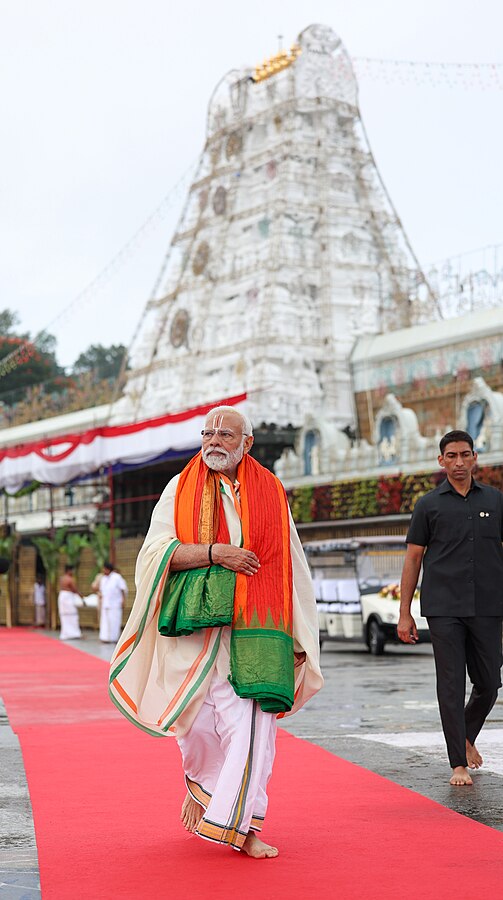
But what was art during the times of Indira Gandhi has become a science. Enforcement Directorate (ED), or Central Bureau of Investigation (CBI), have become dirt collectors on political opponents. If you oppose the government, you are a marked person. Now, if there are no elections, there would be no need to vilify or demonise the opposition. ED or CBI will be able to function as they can, focusing on crime and corruption rather than political opponents. Modiji will not have to shake hands with corrupt politicians or protect them just because they have jumped ship. Conversely, he would not need to send them to jail just because they oppose him.
No need to blame Nehru or Indira
If there were ever a record of how many times the reigning prime minister has taken the name of the first prime minister, it would definitely belong to Modiji. I am sure not even his daughter or grandson, both PMs, ever referred to the Nehru patriarch as much as our beloved Modiji has. There is scarcely any moment when Nehru-Gandhis are not remembered. We know more about Nehruji only because of these unceasing remembrances. If there is no election, there would be no need for a blame game. No need to rake the past for mud-slinging. Nehruji (wherever he might be) will heave a sigh of relief, and so will Indira Gandhi or Rajeev Gandhi. The blame for everything will not be transferred to the Nehru-Gandhi family. Modiji will not need to raise the bogey about the past and focus on how things stand now.
No need to strike a deal with corruption
Remember, “na khaaunga or na khaane dunga,” statement by Modiji. He had promised to eradicate corruption in the most radical of ways. Sadly, the only things that have been eliminated are the cases against politicians who have jumped ship to join the party. This could largely be a result of how our polity runs. However much you might want to be righteous and punish the corrupt, one has to join alliances to win seats and get numbers invariably. Now, if Modiji does not have to bother about electoral bonds or the number of seats, he will go the whole hog against the corrupt and mighty. It could be politicians; it could be businesses. None would be spared. India would emerge into an era of real Ram Rajya, where corruption, cronyism, nepotism or any such ism would not exist.
No need to please businesses
One of the evils of elections is that one needs to please Mammon. You need big money to fight such elections, which comes from big businesses. But it is not all hunky-dory. There is always a quid pro quo in terms of policies or favours. The business people investing in a rupee would expect a million back. If no elections are to be fought, there will be no need for big money or a quid pro quo. Policies will be designed how they should be rather than benefitting some person or entity. There will be no loopholes in laws, and there will be no shortcuts.
No need for rallies or roadshows
Modiji invests a significant amount of time and effort in fighting the elections. Since these national contests are done in his name, he is forced to traverse the length and breadth relentlessly seeking votes. Imagine the sheet burden on Modiji’s time. If there are no rallies or roadshows, Modiji can spend more time on constructive work. He would be able to invest more time in solving the real issues confronting India: population explosion, unemployment, healthcare and so on.
No need for religiosity
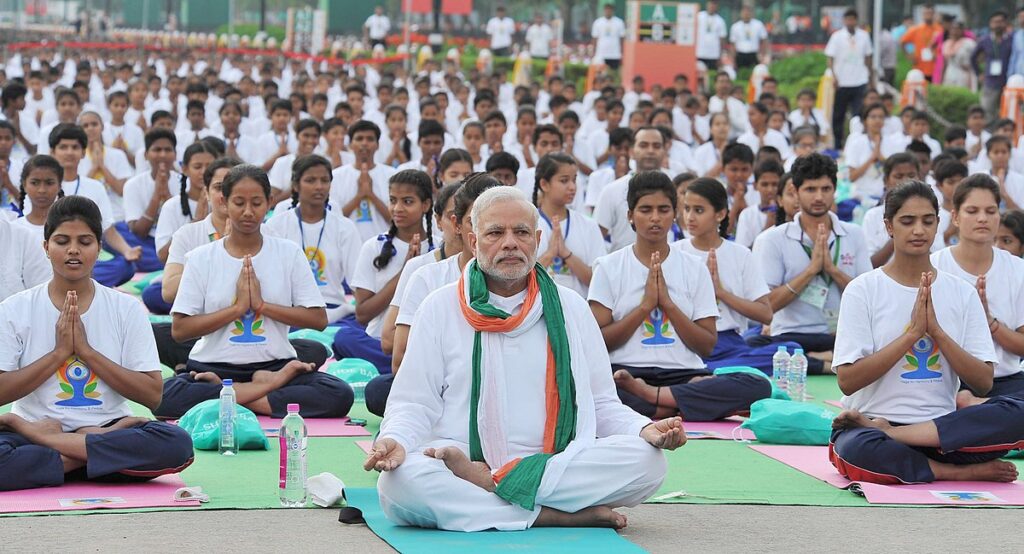
India is a land of temples; we already have some of the most magnificent ones. At this juncture, the numbers suffice. Then again, we need to find the divine in us, not outside. As Kabir says, “moko kahan dhunde re bande, main to tere paas mein. Na mandir mein, na masjid mein, na kaabe kailash mein.” We need good hospitals and centres that provide affordable healthcare, and they won’t have to go to private hospitals. What we need is great public education institutions so parents don’t have to kill themselves paying fees for private schools and colleges. We need great centres of learning rather than just religious ones. With no requirement to pander to any specific segment, we can move to a spiritual plane that is more inward-looking than chest-thumping.
No need to destroy the environment
One consequence of urban lifestyles is a more significant destruction of nature and the environment. To power the cities, we need more coal, and to get more, we need to strip more forests. This leads to a negative feedback loop. As the forests are destroyed, we have greater warming — leading to a greater need for cooling. As India rapidly urbanises, more and more citizens (voting) live in the cities. And any government must be aware of their needs. Of course, there could be pot-holes, water issues, and planning chaos, trees chopped for metros, but one cannot do without electricity. Now, if Modiji does not have to bother about these city-wallahs, why would he ever let the forests’ destruction occur? I am sure he would not let dams come up in eco-sensitive zones like the North East and would not allow the destruction of island ecosystems like Andamans or Lakshadweep.
No need for media stooges
To win elections, one needs to build opinions and to build opinions, one needs a pliant press. The fourth pillar of democracy is usually under the thumbprint of the reigning government through coercion or inducement. It is often a dog that readily wags its tail—for exclusive interviews, access, and advertising spend. The government, too, needs the press to forward its agenda. What if there was no need to hard sell? Modiji would not be bothered by a free press. He would then readily hold candid press conferences like any other leader without worrying about who would ask what. Neither will he be perturbed by what is being reported, even if it is the truth. All the domesticated and pet journalists will be disbanded; only the wild ones will remain free to write whatever they want, to show whatever they want.
Imagine the gains one can have by giving up on an election that is just a formality of sorts. We could save so much money and so much angst and usher in the golden age of Modi-rajya. I mean, if Lord Ram had to constantly bother fighting an election in Ayodhya, managing vote banks, dealing with babus, courting the vyaparis, and so on, would he be able to deliver good governance as well? I highly doubt it.


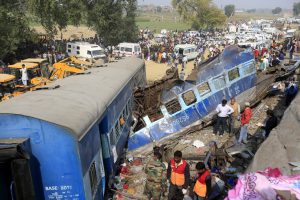 times, almost equally in casualties as that of Gyaneshwari Express in which some 150 had died in 2010, when the train had been derailed by Maoists in West Bengal. The scale of deaths and injuries makes the current accident, one of the worst in the history of Indian Railways. Sadly, going by the things as they are, this accident won’t certainly be the last “major one” in India’s transport sector.
times, almost equally in casualties as that of Gyaneshwari Express in which some 150 had died in 2010, when the train had been derailed by Maoists in West Bengal. The scale of deaths and injuries makes the current accident, one of the worst in the history of Indian Railways. Sadly, going by the things as they are, this accident won’t certainly be the last “major one” in India’s transport sector.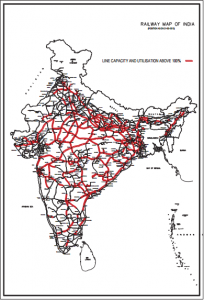 railways have a network of more than
railways have a network of more than 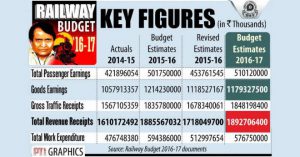 to come. Indian Railways (IR) is right now like a patient that is afflicted with tuberculosis, the symptoms are all there. But if we only concentrate on the manifestation and ignore the ailment, the patient is going to eventually die. The prognosis for IR is similarly dour. And here’s why:
to come. Indian Railways (IR) is right now like a patient that is afflicted with tuberculosis, the symptoms are all there. But if we only concentrate on the manifestation and ignore the ailment, the patient is going to eventually die. The prognosis for IR is similarly dour. And here’s why: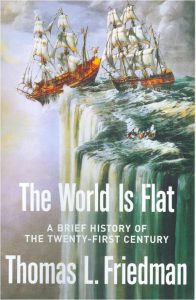 quite a simple book talking about the state of affairs of the world, especially in connection with globalization. The book speaks of how the world is coming together as one big place from Denver to Dalian to Bangalore. It was meant to be a chronicle of our times, and a sort of prognosis of the things that are yet to come. Friedman reaped rich rewards from his book, traveling across the globe, giving talks and discussing the subject.
quite a simple book talking about the state of affairs of the world, especially in connection with globalization. The book speaks of how the world is coming together as one big place from Denver to Dalian to Bangalore. It was meant to be a chronicle of our times, and a sort of prognosis of the things that are yet to come. Friedman reaped rich rewards from his book, traveling across the globe, giving talks and discussing the subject. and Mexico for the “greatest jobs theft” in the history of the world. According to him, Indians and other nationals were gobbling up American jobs. Indians were no more a threat, but rather scheming thieves that stole and cheated. Now how could that narrative change so quickly? What happened to that ‘flat world’ that was meant to be equal for all
and Mexico for the “greatest jobs theft” in the history of the world. According to him, Indians and other nationals were gobbling up American jobs. Indians were no more a threat, but rather scheming thieves that stole and cheated. Now how could that narrative change so quickly? What happened to that ‘flat world’ that was meant to be equal for all 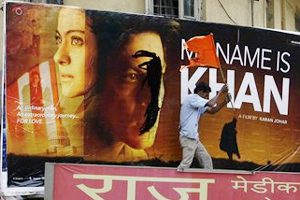 preventive custody, and even warning Uddhav Thackeray of dire repercussions. The battle lines were drawn, a defiant SRK refused to apologise, whereas the Shiv Sena would have nothing less than it. As the battle progressed, the saffron party seemed to lose steam and was looking for a way out of the imbroglio, with its leader talking about a “public apology” as an acceptable truce. That did not come though, and the film was released among heightened tensions. As is the case with quite a few SRK movies, MNIK earned its crores, got all the awards, and was declared a hit.
preventive custody, and even warning Uddhav Thackeray of dire repercussions. The battle lines were drawn, a defiant SRK refused to apologise, whereas the Shiv Sena would have nothing less than it. As the battle progressed, the saffron party seemed to lose steam and was looking for a way out of the imbroglio, with its leader talking about a “public apology” as an acceptable truce. That did not come though, and the film was released among heightened tensions. As is the case with quite a few SRK movies, MNIK earned its crores, got all the awards, and was declared a hit.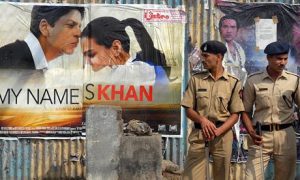 diplomatic mumbo-jumbo, here and there, but these were largely from the smaller actors, the ones people call character artists. The big shots of Bollywood were dumb-founded, much like their likeness that represents them at Madame Tussauds and elsewhere. The Khans, the Kapoors and even the Bachchans, kept mum. Bollywood, the big family of superstars, was more like a petrified herd of goats. The kind that will retreat into the barnyard at the sign of first trouble.
diplomatic mumbo-jumbo, here and there, but these were largely from the smaller actors, the ones people call character artists. The big shots of Bollywood were dumb-founded, much like their likeness that represents them at Madame Tussauds and elsewhere. The Khans, the Kapoors and even the Bachchans, kept mum. Bollywood, the big family of superstars, was more like a petrified herd of goats. The kind that will retreat into the barnyard at the sign of first trouble.